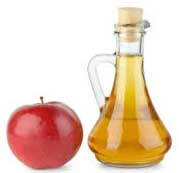Turmeric has been scientifically documented to have over 500 applications in disease prevention and treatment. It also has been shown to modulate over 150 distinct biological and genetic/epigenetic pathways of value in health, demonstrating a complexity as well as gentleness that no drug on the planet has ever been shown to possess.
Circumin, the active compound in this spice is what makes it so powerful for healing and is a strong anti-inflammatory that helps fight viral infection, cancer, and arthritis. It is a powerful anti-inflammatory and antioxidant with a long history of use both medicinally and in cuisine.
Its antioxidant properties help to neutralize free radicals, stimulate the gall bladder, and protect the liver. Turmeric has been shown to reduce the cellular inflammation and oxidative stress that causes degenerative disease. It improves blood flow, which improves cognitive function and speeds wound healing.
Researchers are investigating the benefits of turmeric for treating Alzheimer’s, cancer, diabetes, arthritis, HIV, cataracts, gallstones, endometriosis, atherosclerosis, heart attacks, and more. Some research shows turmeric to have anti fungal and anti-bacterial compounds as well. It is one of the most-studied herbs today
Some research even shows how turmeric can boost oral health greatly, offering support for issues like gingivitis, mouth cancer, and much more
There are too many health conditions that turmeric may benefit to list, but here re some of the top mentions:
- Oxidative Stress
- Inflammation
- DNA Damage
- Lipid Peroxidation
- Colorectal Cancer
- Breast Cancer
- Colon Cancer
- Chemically-Induced Liver Damage
- Alzheimer’s Disease
- Tumors
Considerations for use
Anyone taking prescription blood thinners, anti-coagulants, or has biliary tract obstruction should not take turmeric or curcumin because it stimulates bile secretion. If it is indicated for your condition, be sure to verify if you should use the powder, a tincture, or a poultice. Enhance absorp- tion by taking it with black pepper or bromelain/pineapple. Pineapple will also help with the stom- ach distress prolonged use of curcumin can cause. People with congestive heart disease and who don’t know the cause should also avoid curcumin, as should those who have trouble with blood clotting. It is also not recommended for people with painful gallstones, toxic liver disorders, bilious colic, or obstructive jaundice, according to Bach. If pregnant or trying to become pregnant, check with a qualified practitioner.

